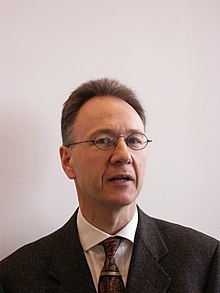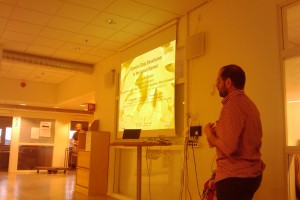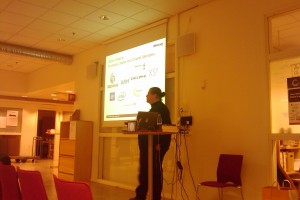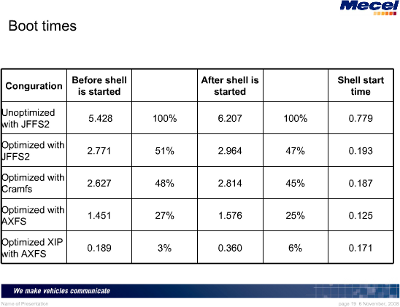[continued from FSCONS 2010 day 1]
With the previous night’s social event ending fairly late and involving a fair amount of good beers, it was nice to be able to sleep in a bit and have one of those great hotel breakfasts in a slow and relaxed manner.
I then checked out from the hotel and walked over to the venue, this time not as mislead by google maps’ directions as I was yesterday.
The economics of open innovation and FOSS. was the first session I attended and the talker Karthik Jayaraman did a good job of explaining and showing how things can happen fast and why and he did some interesting predictions of the future.
I followed Kathik’s talk in the same room with my 30 minute session Future transports in which I discussed and explained a bit about transport protocols today and what might come tomorrow.
Glyn Moody is a bit of a celebrity (he has for example written several books)  and you can tell he’s done this before. He’s an excellent speaker and as he’s a native English person he has a bit of an edge compared to most speakers at this conference. Mr Moody got the biggest room at FSCONS filled up to the last available chair and there were still a bunch who had to sit on the floor.
and you can tell he’s done this before. He’s an excellent speaker and as he’s a native English person he has a bit of an edge compared to most speakers at this conference. Mr Moody got the biggest room at FSCONS filled up to the last available chair and there were still a bunch who had to sit on the floor.
Glyn talked about Ethical Monopolies, the history of patents and copyright and how they have changed and how they today no longer are even close to having the purposes they were created for.
He advocates that we stop talking about “Intellectual Properties” but instead refer to them as “Intellectual government-granted monopolies” as that is a much better use of words when these subjects are brought up. The ordinary person thinks people should be able to keep properties, but would in many cases object to (more) monopolies.
The last session I got to enjoy this year was Mikael von Knorring’s “Who are the free users” which did present a good view of things but I wasn’t very focused during the talk so I’ll refrain from judging it in any direction.
I took a last stroll over to the cafeteria area where I found some friends, said hello and good bye and then I took off towards the train station and my 3+ hours train ride back to Stockholm on the other coast of Sweden. (It could be noted that I left early, there were at least two session slots that I missed.)
My head is packed with impressions. I met lots of great people and friends, both old and many new ones. We had awesome discussions and I hope at least some of the ideas that were brought up will be turned into reality. I will post more about those here if/when they happen.
The future for Free Software (in the Nordic region) is bright!




